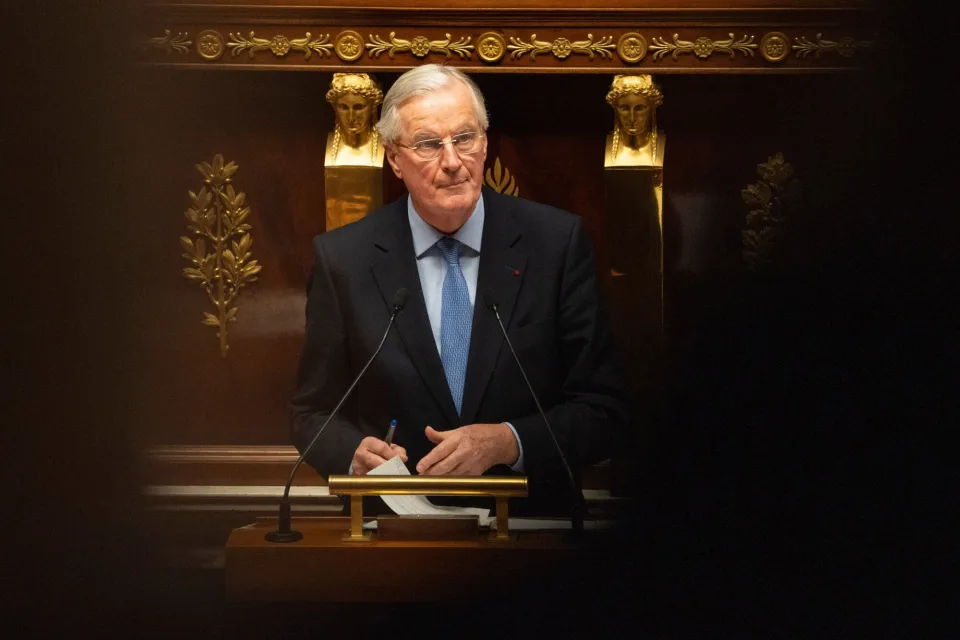(Bloomberg) — The euro faces further headwinds after the French government was toppled in a no-confidence vote, muddying the outlook for investors bracing for an extended period of political wrangling.
Traders are weighing the path ahead for the common currency after a dispute over next year’s budget led far-right leader Marine Le Pen and a left-wing coalition to push through a no-confidence motion against Prime Minister Michel Barnier’s administration on Wednesday.
“We are entering a prolonged period of instability in French politics,” said Skylar Montgomery Koning, a currency strategist at Barclays Plc in New York. “That can only be considered a headwind for the euro.”
Investors had largely priced in the outcome ahead of time, and French bond futures held onto gains after the vote, which came after regular trading had closed. The euro hovered near $1.052 as of 10:50 a.m. Singapore time, while overnight volatility levels remained muted.
While the result of the vote was widely expected, it takes France into uncharted territory and hinders efforts to rein in a deficit that is forecast to widen to more than 6% of gross domestic product this year — double the limit under the European Union’s rules. It also threatens to weigh on the common currency just as the market prices in more monetary easing to support the bloc’s economy.
“The recent developments in France only compound the headwinds for the nation and the European Union in general,” said Bill Campbell, a portfolio manager at DoubleLine Capital.
The latest political drama that has roiled French markets kicked off in June when President Emmanuel Macron called snap legislative elections that resulted in a hung parliament. Since then, the euro has tumbled by roughly 2.7% against the dollar.
French borrowing costs relative to Germany’s have soared, last week touching 90 basis points, the highest since the euro-area sovereign debt crisis.
To Shaun Osborne, the chief currency strategist at Scotiabank, the vote likely means that “further concessions will have to be made to get the budget passed, so some weakening in overall fiscal policy settings will result.”
“If this situation intensifies, the euro may come under more pressure” given the deadline to pass a budget, he said.
While Wednesday’s price action was muted and bond markets stabilized ahead of the no-confidence vote, some investors are also bracing for further losses in what was traditionally considered one of Europe’s safest issuers.
“We are pessimistic on the outlook for the French deficit,” Alex Everett, an investment manager at abrdn, said Wednesday. “Continued malaise, a dearth of decision making and insufficient progress towards debt sustainability would likely see French spreads move toward 100 basis points over Germany.”
The bill initially presented by Barnier’s government contained €60 billion ($63 billion) of tax increases and spending cuts that aimed for a sharp adjustment in the deficit to 5% of economic output in 2025.
Barnier warned last week of a “storm” in financial markets if he is dismissed from power. Despite making concessions on the budget, the National Rally and the leftist coalition called for the votes of no confidence.
Macron can now appoint a new prime minister, although there is no constitutional deadline for his decision. He has said previously he wouldn’t resign until his full term had ended. The next presidential election is set for 2027 and Le Pen remains the frontrunner, according to polls.
–With assistance from Carter Johnson, Anya Andrianova and Kristine Aquino.
